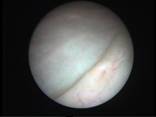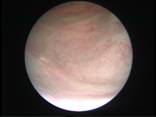How does the urinary system work?
The urinary system consists of the kidneys, the bladder, the ureters and the urethra. The kidneys filter the blood to remove waste products and form urine. The urine flows from the kidneys, down through the ureters to the bladder. From here it passes through another tube called the urethra to the outside when urinating (urinating).
What is a cystoscopy and why does my child need one?
A cystoscopy is a test that allows the doctor to look inside and around your child’s bladder using an endoscope (a tube containing a small camera and a light). The cystoscopy is carried out under a general anaesthetic (your child will be asleep) and lasts less than an hour.
A cystoscopy allows the doctors to find out what is causing your child’s problems without performing a larger operation. Your child may need a cystoscopy to find out if the bladder is infected, why there is blood in his or her urine or why he or she has poor bladder control.
Are there any alternatives to a cystoscopy?
A cystoscopy can give your doctor a fuller picture of your child’s condition. The only real alternative is an operation to examine the inside of the bladder, but this is avoided wherever possible. A cystscopy is quicker and has fewer lasting effects than an operation.
What does the procedure involve?
Your child will have this procedure under a general anaesthetic. This means he or she will be asleep and not feel any pain during the test.
Once your child is asleep, the doctor will insert the endoscope into your child’s urethra. From here, he or she will pass it into your child’s bladder. The doctor can now look at the inside of your child’s bladder, and also the tubes leading from it to the kidneys. Before your child wakes up, we will give him or her some pain relieving medications. This will reduce any discomfort in the hours following the test.
Right and Left ureteric orifice
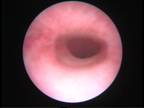
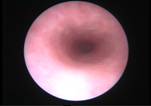
Urethra seen at cystoscopy
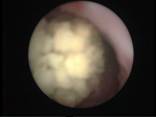
Stone seen in the ureter (urinary tube) at cystoureteroscopy
What happens afterwards?
Your child will come back to the ward to recover and will be able to go home once he or she has had something to drink and urinated.
You should encourage, but not force, him or her to drink plenty of fluids. He or she may feel a stinging sensation when passing urine but this will pass in a day or two. Try to avoid giving your child fruit juice as this is acidic and makes the stinging worse. It does not matter if he or she does not feel like eating for the first couple of days. There may also be a small amount of blood in your child’s urine, but this is also temporary.
When you get home, you should give your child regular pain relief as often as he or she seems to need it.

